Specialist Doctor 2 Dinh Tran Ngoc Mai, Department of Nutrition - Dietetics, University of Medicine and Pharmacy Hospital, Ho Chi Minh City, answered: The trend of eating salt-roasted quail eggs with shells has become popular on social networks recently, but it poses many potential risks to consumers' health if not processed and handled properly.
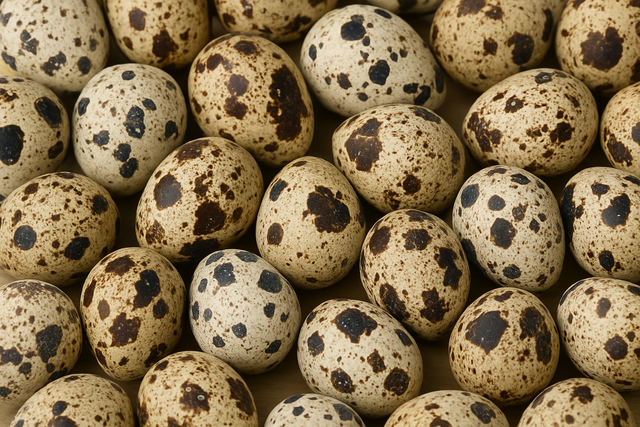
Quail eggs are very good, but eating salted quail eggs with shells has many potential health risks.
Photo: AI
Eating whole salted quail egg shells can cause oral mucosal scratches
Dr. Ngoc Mai said that eggshells are often discarded because they are easily contaminated with bacteria such as Salmonella, E. coli, or other bacteria from the outside environment during transportation and storage. If not washed, disinfected, and cooked thoroughly, eating the shell can lead to gastrointestinal infections, causing diarrhea, abdominal pain, or even food poisoning. In addition, salt-roasted quail eggs also use a large amount of salt and strong spices, which is not beneficial for people with underlying medical conditions such as high blood pressure, cardiovascular disease, or on a low-sodium diet. Regular consumption of such "trendy" dishes can easily cause nutritional imbalance and increase the risk of metabolic diseases if not properly controlled.
Hot weather: What to drink to keep your heart healthy?
Scientifically , eggshells are mainly composed of calcium carbonate (CaCO₃) - accounting for about 95% of the shell weight - along with a small amount of protein and other minerals. However, the human body cannot effectively absorb calcium from eggshells when eaten directly, especially if the shells are not processed (finely ground, calcined or sterilized properly). In nutritional studies, eggshells are only used as a calcium supplement after being industrially processed to ensure safety and bioavailability. Therefore, eating whole salted roasted eggshells does not provide any significant nutritional value, but on the contrary, there is a potential risk of scratching the oral mucosa, throat or digestive tract due to the sharp edges of the eggshells.
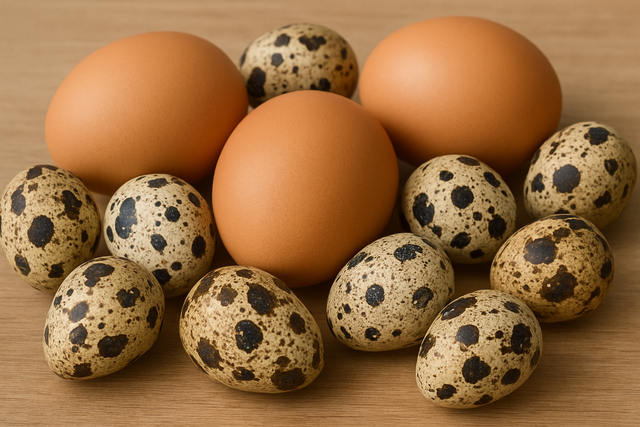
Quail eggs and chicken eggs are both good for health.
Photo: AI
5 quail eggs are equivalent to one chicken egg in calories.
According to Dr. Ngoc Mai, each quail egg weighs about 9-10 grams, containing about 1.2-1.4 grams of protein, about 14-15 kcal of energy, and some vitamins such as A, B12, riboflavin, iron and selenium. Compared to chicken eggs, quail eggs have a higher protein and micronutrient content per unit of weight, but due to their small size, people often consume many eggs at one meal. For example, eating 5 quail eggs is equivalent to one chicken egg in terms of calories, but contains about 6-7 grams of protein and about 380 mg of cholesterol - exceeding the recommended daily cholesterol threshold for adults. Therefore, consuming too many quail eggs at once, especially fried or salted with a lot of oil, will easily lead to excess energy, saturated fat and cholesterol in the diet.
In summary, quail eggs are a nutritious food when used appropriately and processed properly. However, consumers should not follow unverified food trends such as eating salted quail eggs with shells. Egg shells are not an effective source of calcium and can be harmful if eaten directly. To ensure safety and nutrition, consumers should use healthy methods such as boiling or steaming quail eggs, and control the amount consumed at each meal. A balanced and scientific diet is always the key to long-term health protection.
Source: https://thanhnien.vn/an-trung-cut-rang-muoi-nguyen-vo-co-tot-185250418012407614.htm









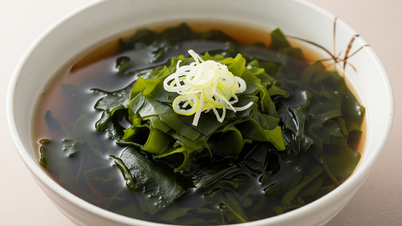
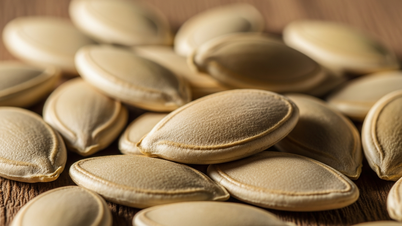









































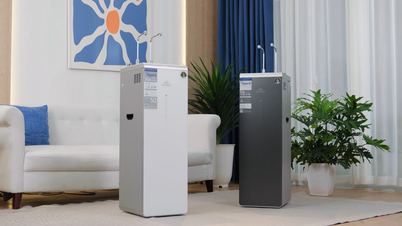







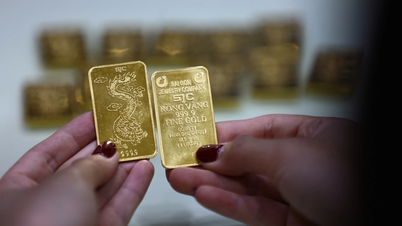











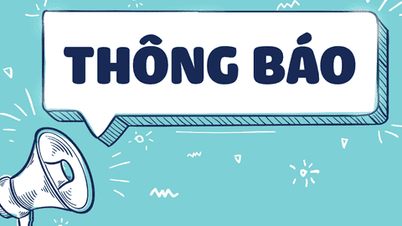




























Comment (0)